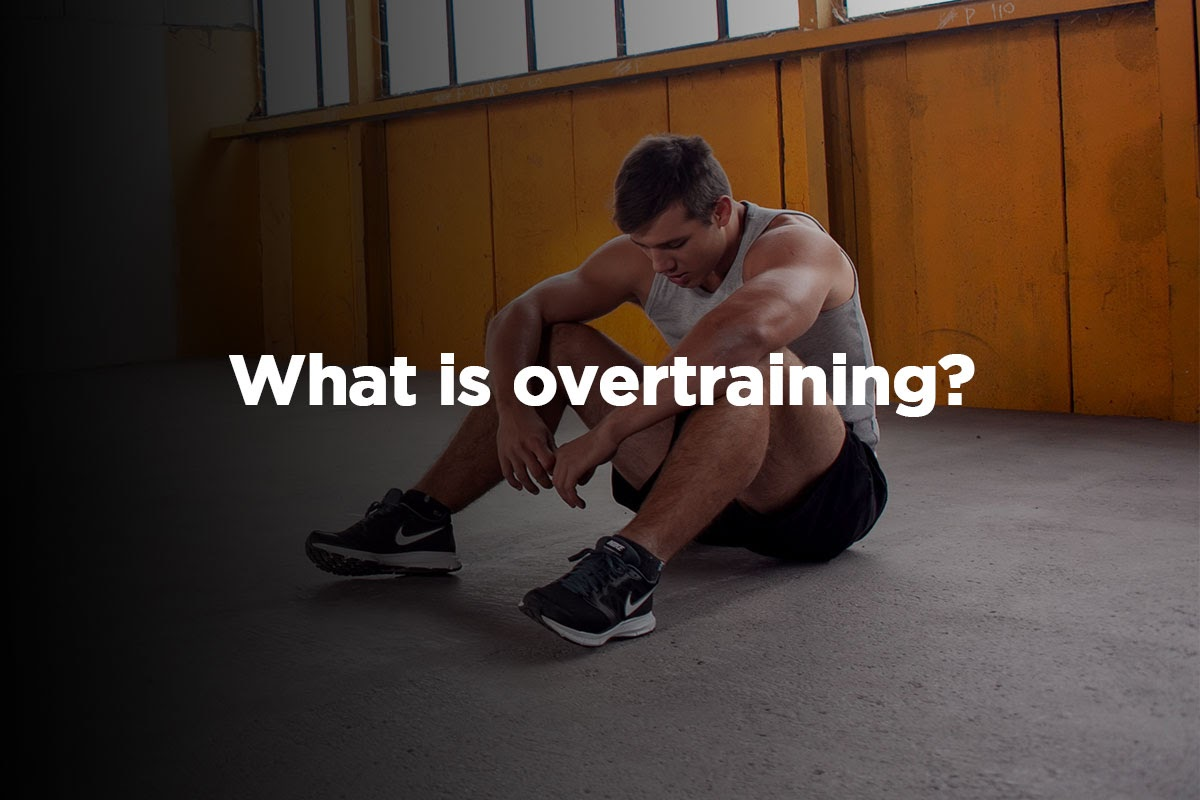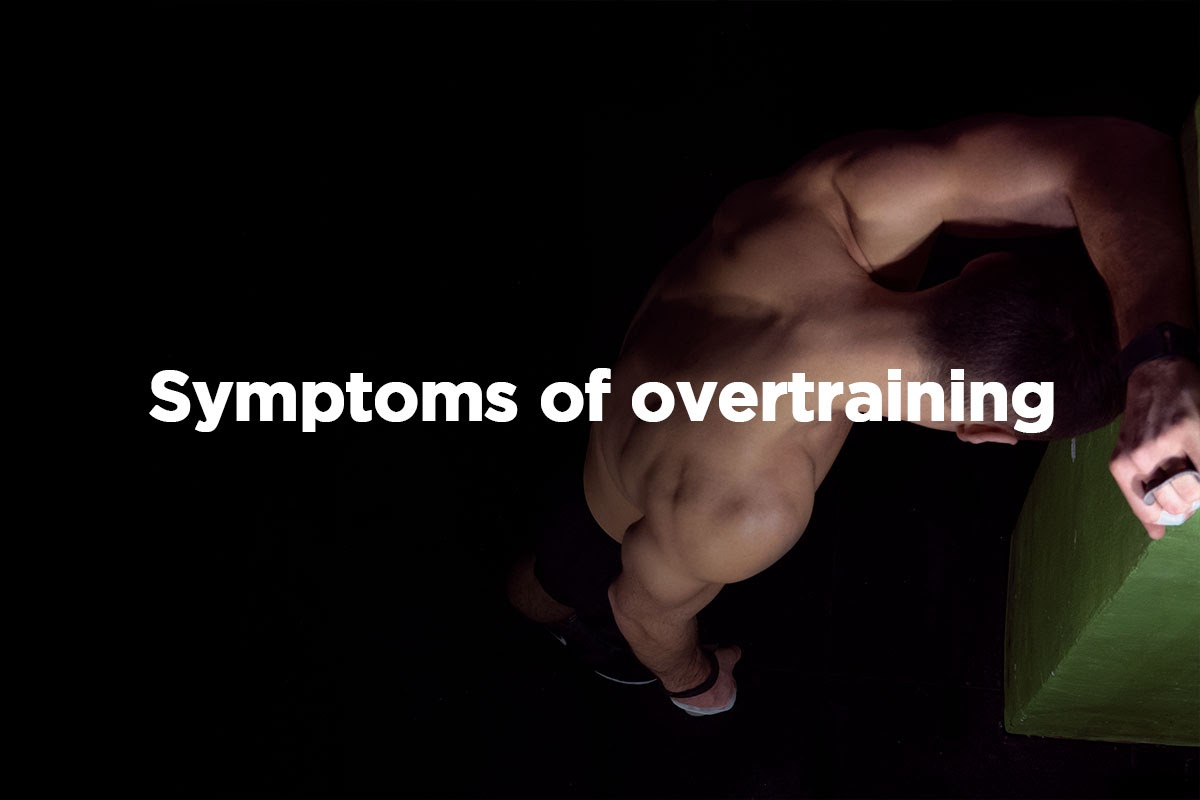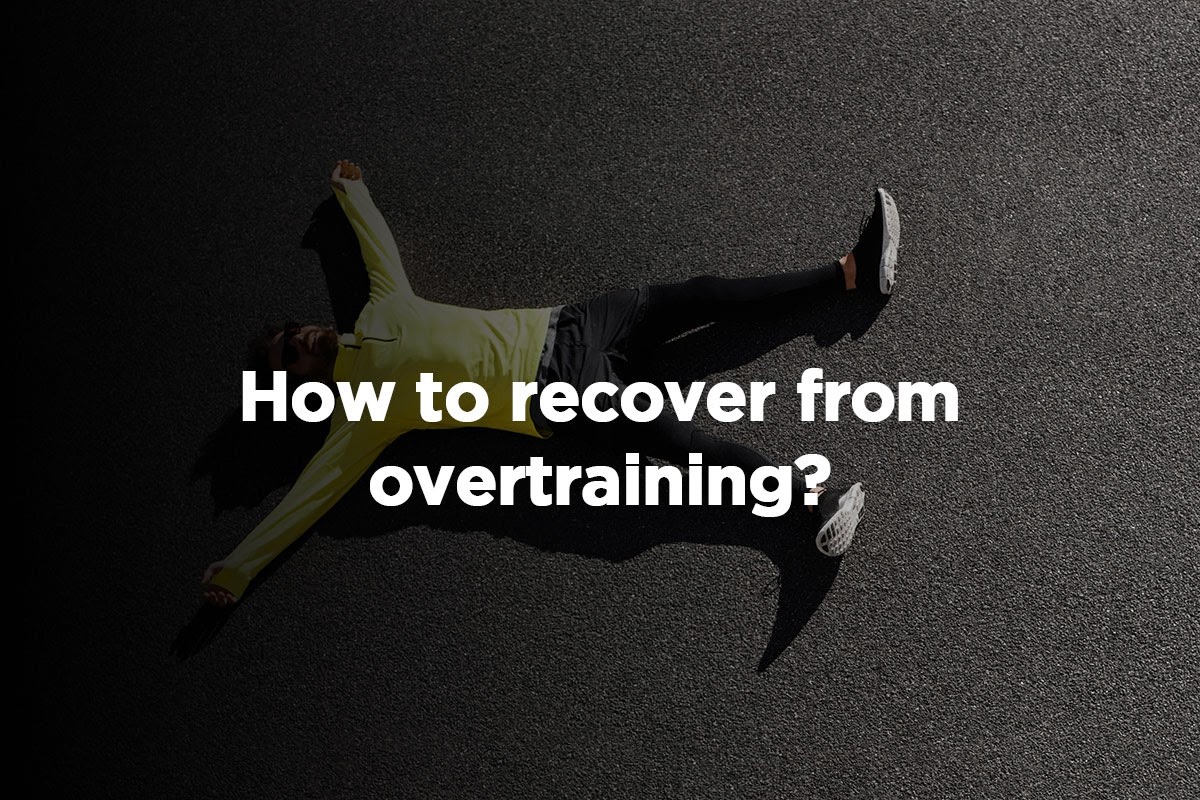Symptoms of overtraining you need to know
Find out all about red flags your body uses to tell you you need more rest.

We are all looking to achieve the best possible results in as little time as possible. In this process, we often test limits on how much we can take.
While we chase for perfection and constant improvement, it is important to listen to our bodies, to make sure we don’t do more harm than good. So, read more to find the most common symptoms of overtraining your body uses to tell you to take a rest.
What is overtraining?

Overtraining is the point in which the body’s ability to recover from exercise is exceeded. You have given your body more than it can handle. By exercising, you are putting stress on your body, and it takes time for it to recover from that stress.
By not giving your body time and means to recover from the stress of exercising properly, you are risking overtraining. Keep your eyes open for the following symptoms of overtraining.
Symptoms of overtraining

There are many symptoms of overtraining, but some are really red flags. Find out the most common ones you should not be ignoring.
Decreased performance
Decreased performance is probably the first significant symptom of overtraining fitness enthusiasts will notice. If you are not moving forward with your training, no matter how hard you try, you might be pushing yourself too hard.
If this happens, pushing yourself even harder will only backfire. Try giving your body rest it needs, and you might be amazed by the increased performance afterward.
Insomnia and disrupted sleeping habits
Disturbances in sleep are believed to be a key symptom of overtraining. Sleep is the time for your body to rest and recover from the stress it experienced throughout the day. Adequate sleep is important for overall functioning, as well as to help your body recover from the workout.
Overtraining can affect sleeping habits in two ways, and neither is good. You can exhaust yourself so much that you need more sleep than usual, and you never feel completely rested. On the other hand, you can get so overstimulated by exercising that you are unable to fall asleep or achieve deep sleep.
Lack of sleep will negatively affect many other areas of your life than just the training, so make sure to get enough of high-quality sleep every day, and don’t ignore the warning symptom of disrupted sleeping habits.
Agitation and mood swings
Overtraining affects your hormones in many ways. One of the hormones it affects is cortisol. With overtraining, cortisol levels in your blood can be both high and low, depending on other factors as well. However, both high and low levels of cortisol can create feelings of anxiety, moodiness, and irritability.
Loss of appetite
Training affects two hormones: ghrelin and peptide YY. Ghrelin is better known as the hunger hormone, and it stimulates hunger. On the other hand, peptide YY suppresses hunger. Both aerobic and resistance training cause levels of ghrelin to drop, while aerobic training also stimulates an increase in the peptide YY.
Also, overtraining can cause an unhealthy increase in the release of epinephrine and norepinephrine, which are both appetite suppressant hormones. As your body needs nutrients to recover, this can be a dangerous side-effect, so track your calorie intake to make sure you are providing your body with all the nutrients it needs.
Decreased immunity and an increased number of injuries
As some authors suggest, the immune system is highly susceptible to degradation due to overtraining, resulting in a reduction in overall health.
If your body is drained by overtraining, it won’t have sufficient strength to heal the injuries or fight off the infections. Keep your eyes open for muscle pain that doesn’t subside in a couple of weeks, or often infections of the upper respiratory tract, which can be a symptom of overtraining.
How to recover from overtraining?

You will not see the results you expect if you don’t give your body enough nutrients and rest to recover from exercises. Keep reading to find out how to recover from overtraining most efficiently.
Rest and sleep
As it’s already mentioned, sleep is crucial for your body to recover. During the deep sleep, human growth hormone (HGH) is at its highest level. HGH helps to speed up healing after an injury and repair muscle tissue after exercise.
If your sleep is interrupted, a complete recovery of soft tissue is impossible due to the absence of human growth hormone. Therefore, make sure to get between 7 and 9 hours of quality sleep every night.
Proper nutrition
Giving your body a proper fuel to fix the damage done by overtraining is important, especially if you have experienced a loss of appetite as a symptom.
Triathlete gives great tips on how nutrition can help you eat yourself out of overtraining:
Intelligently increase your calorie intake
Eat healthy, lean sources of protein
Add more nutrient-dense fruits and vegetables to your diet.
Also, you can supplement with vitamins, minerals, and other supplements that are explicitly designed to help the body recover after a workout. Make sure not to skip your meals and track your calorie intake to ensure your body gets all the nutrients and calories it needs.
Sports massage
Overtraining can lead to tense, painful muscles. Sports massage will help you relax both mentally and physically. Also, it seems to be the most effective method for reducing muscle soreness and perceived fatigue.
Takeaway
Overtraining happens when you give to your body more than it can handle. Its symptoms should not be taken lightly since they can affect your overall functioning, not just your training.
Always listen to your body and don’t ignore the red flags it’s sending you. Don’t forget to incorporate rest days in your schedule, eat healthily, and get enough quality sleep to avoid overtraining.




Post a comment